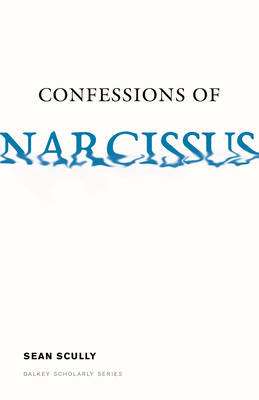
- Afhalen na 1 uur in een winkel met voorraad
- Gratis thuislevering in België vanaf € 30
- Ruim aanbod met 7 miljoen producten
- Afhalen na 1 uur in een winkel met voorraad
- Gratis thuislevering in België vanaf € 30
- Ruim aanbod met 7 miljoen producten
Omschrijving
In Confessions of Narcissus, Scully suggests that our demand for narrative coherence is one of the things that makes our lives so difficult to bear, that when William Hazlitt declared, "It is we who are Hamlet", he was telling us something about Shakespeare's universality that is worth considering: Hamlet does not just give voice to our own fears and anxieties, he also calls them into being. In the process of trying to find cures for ourselves, that is to say, we become creators, to some extent, of our own misfortunes. Confessions of Narcissus builds from the idea that stories are what we require and also (partly) what we suffer from.
In this series of observations and aphorisms about literature and life, Scully makes the case that uncertainty isn't an ailment that we should necessarily try to overcome. Following in the tradition of Keats and others, uncertainty may be something that we have good cause to be more curious about, that uncertainty has artistic merit and is a state of being that we might even come to enjoy.
Specificaties
Betrokkenen
- Auteur(s):
- Uitgeverij:
Inhoud
- Aantal bladzijden:
- 98
- Taal:
- Engels
- Reeks:
Eigenschappen
- Productcode (EAN):
- 9781628974539
- Verschijningsdatum:
- 21/03/2023
- Uitvoering:
- Paperback
- Formaat:
- Trade paperback (VS)
- Afmetingen:
- 135 mm x 211 mm
- Gewicht:
- 136 g

Alleen bij Standaard Boekhandel
Beoordelingen
We publiceren alleen reviews die voldoen aan de voorwaarden voor reviews. Bekijk onze voorwaarden voor reviews.











